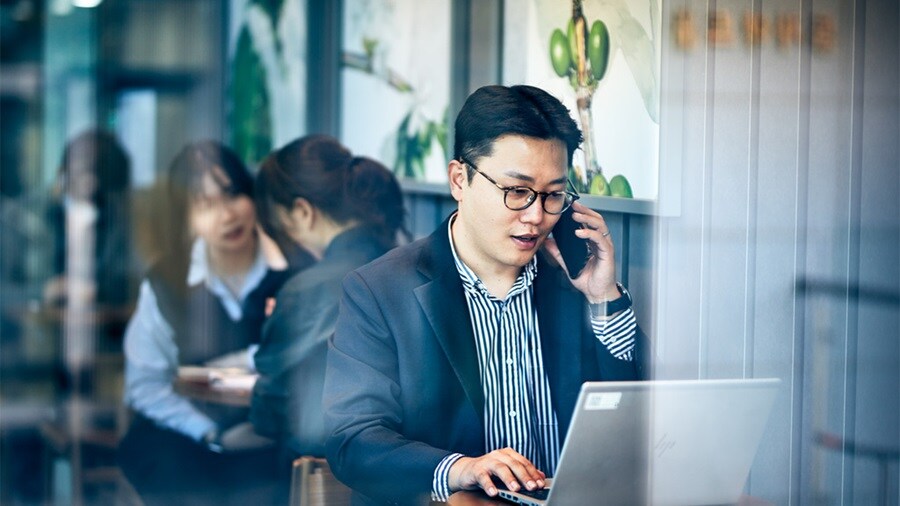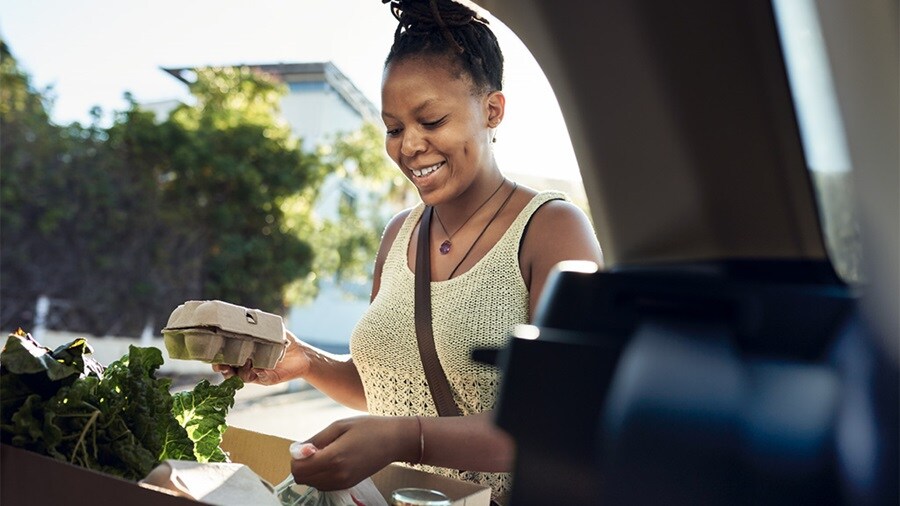As far as complications in the world of logistics go, it’s safe to say that handling customs procedures would be at the top of the list for many businesses around the world. Compliance at the border relies on a number of puzzle pieces coming together at the right time, so it’s little wonder customs is among the top reasons for companies suffering supply chain delays.
However, it’s not just businesses that are hoping to optimise and simplify customs processes, as governments around the world are increasingly taking a look in the mirror and looking to improve how their own borders function. And that’s where Maersk’s Border Management Consulting (BMC) specialists in the Global Trade and Customs Consulting (GTCC) team come in.
So what’s the goal for governments? Collaborating with Maersk to achieve faster, more transparent, more predictable, and crucially, more appealing borders to facilitate trade for businesses worldwide.
As Christer Andersson, BMC Global Manager, puts it: “We don’t just move containers from A to B — we help countries transform and completely reimagine how trade works. And that transformation directly helps our customers move their goods faster, save money, and grow. We want smarter trade, moving smart containers through smart borders, in a trade-complaint way. This vision is more important than ever in the current trade environment and can only be done in partnership between the private sector and governments.”
Better borders, better business
The functionality of global trade depends on efficient borders. Delays, red tape, and inconsistent rules at customs can slow down shipments, increase costs, and introduce risk into supply chains.
When border processes work more efficiently, so does the global logistics network. No matter where your goods are moving, trade starts and stops at the border. But in many parts of the world, the systems that govern trade are still paper-based, fragmented, or inconsistent – creating real challenges for businesses to navigate.
Maersk’s work with governments focuses on three essential goals every customs authority shares: protecting the border, collecting revenue, and facilitating trade. Getting the balance right to accomplish all three, without compromising any, is crucial.

“We provide blueprints, proven models, and the know-how to modernise border systems in line with global standards set by the likes of the World Customs Organization (WCO),” explains Andersson. “And most importantly, these aren’t theoretical policy ideas — they’re real-world solutions with a measurable business impact. One of the most surprising aspects of this work is how much can be achieved without changing legislation. In fact, many of the most effective reforms come from better coordination, better use of data, and better alignment across agencies. Governments often think reforms need to be big or expensive, but a lot of the time it’s about working smarter with what’s already in place.”
So how does Maersk support governments? It’s a multi-faceted process tailored to individual requirements, but the ultimate goal is offering tools, training, and strategies to make procedures faster, more predictable, and less burdensome for both officials and traders.
In many countries, for example, Maersk has helped implement Single Trade Window systems — digital platforms where companies can submit all of their required trade documents in one place, even if multiple internal government agencies are involved. This eliminates duplication, cuts paperwork, and reduces time at the border.
“Our latest example is operational tests with a number of governments to introduce inter-connected, intelligent digital trade corridors. Maersk, together with our clients, creates trust badges of verified data into passports for goods. These AI-powered passports are made available to customs and other border agencies as early as possible, supporting risk and compliance management in new advanced way and making it possible to make border crossings more efficient, predictable, and resilient,” says Andersson.

Maersk also supports risk management programs, helping customs agencies focus inspections on high-risk cargo, while allowing trusted traders to pass through quickly. This results in fewer delays for compliant businesses and better security overall.
One key recent example of this coming into practice with a major government is through the ‘Ecosystem of Trust’ pilot scheme alongside the UK Government. Maersk partnered with IBM and led a consortium of industry partners looking to prove that submitting commercial data in advance could speed up customs processes and enable businesses to reach their customers faster.
The test model decreased decision-making time for goods entering Great Britain by a significant 17%, while also eliminating 62% of delays on imported goods that are subject to plant, animal or health controls. For businesses, the scheme reduced private sector customs data collection costs by 40%, plus the enhanced predictability of supply chains made for more cost reductions through inventory optimisation.
Identifying bottlenecks is a crucial way of ensuring borders operate with more fluidity, and Andersson explains that Time Release Studies have been fundamental for optimising processes around the globe:
“We have done more than 50 Time Release Studies of borders all around the world, with a standard methodology to measure bottlenecks, identify time thieves, and detect areas of improvements for governments to make trade faster, better, and more predictable in a safe and secure way. In addition, we have designed, developed, and supported the implementation of Authorised Economic Operator (AEO) and trusted trader programmes in more than 50 countries globally, including models for Mutual Recognition between countries.”
The benefits for your supply chain

When governments modernise and simplify their borders, immediate value is created for companies whether their focus is on imports or exports.
Trading through improved borders makes for the faster clearance of goods, which will enable businesses to feed eager markets at speed and maximise profits, all the while reducing unexpected costs brought about by delays or penalties.
More efficient borders also enhance predictability, enabling businesses to plan with heightened confidence and optimise their strategies for storage.
For exports, improved trade infrastructure opens up new, global markets - especially for small and medium-sized enterprises. “Trade facilitation is an equaliser,” says Andersson. “It allows a farmer in rural Africa or a textile producer in Asia to compete on global terms. And that’s something we care deeply about playing our part in.”
Inconsistent customs clearance and complex procedures have historically caused smaller exporters to miss out on critical opportunities. By improving coordination and digitising processes, you reduce delays and enhance reliability. The result: more local products reaching global markets on a faster path — and that means better outcomes for growers, exporters, and buyers.
As global trade evolves and digital trade continues to be embraced, governments and companies alike are looking for ways to move faster, reduce friction, and manage risk.
Maersk shaping borders of the future for governments not only creates a better trading experience for every party involved in trade, but it also allows the global supply chain network to function in a smarter, more efficient way. When borders work better, business works better.
For more information on Maersk’s Global Trade and Customs Consulting services, click here.
How can logistics help you grow?
Trade is the ultimate connector, expanding businesses across oceans and borders. How can companies stay relevant, predict trends, adjust to their customers’ needs and, at the same time, expand?
Learn more about how Maersk can help with growth.
Okunması gereken sektör trendlerinden haberdar olmak ister misiniz?
Tebrikler, aramıza hoş geldiniz!
Bir hata oluştu
Okunması gereken sektör trendlerinden haberdar olmak ister misiniz?
Bu form aracılığıyla kaydolarak içgörülerimizi doğrudan e-posta kutunuza alın ve gerçek anlamda entegre bir lojistik dünyasına giriş yapın. Size özel makale seçkimizden ilham alın ve birkaç tıklamayla ilgili ticari içgörüler hakkında bilgi edinin. Dilediğiniz zaman abonelikten çıkabilirsiniz.
Bu formu göndererek, A.P. Moller-Maersk ve bağlı şirketlerinden lojistik ile ilgili haberleri ve pazarlama güncellemelerini e-posta yoluyla almayı kabul ediyorum. Abonelikten çıkma bağlantısına tıklayarak bu tür Maersk iletişimlerinden istediğim zaman vazgeçebileceğimi biliyorum. Kişisel verilerinizi nasıl işlediğimizi görmek için lütfen Gizlilik Bildirimimizi inceleyin.













